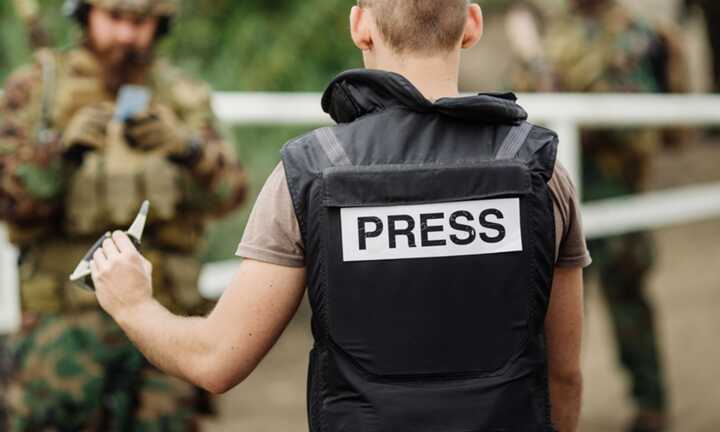
A British environmental and investigative journalist has been banned from entering Cambodia, in what press groups have condemned as yet another attack on independent media by the country’s authoritarian leaders.
Gerald Flynn, who writes for the news outlet Mongabay, was denied entry to Cambodia on 5 January as he returned from a holiday, according to the publication, which said he was forced on to a plane and flown to Thailand.
Flynn was shown immigration documents indicating he had been added to a blacklist on 25 November, days after he was featured in a France24 documentary about carbon offsetting efforts in Cambodia, Mongabay said. The documentary, over which Flynn said he had no editorial control, provoked an angry response from the Cambodian government, which accused it of spreading false information.
Human Rights Watch said the decision to ban Flynn was a “blatant attack on journalism” that served as yet another reminder of the Cambodian authorities’ “intolerance of critical and investigative journalism”.
The Foreign Correspondents’ Club of Thailand also condemned the development, saying in a statement it was “another nail in the coffin of the free press in Cambodia, which has seen local and foreign journalists severely intimidated in recent years and numerous news organisations driven out of business”.
The FCCT cited the killing of Chhoeung Chheng from the Kampuchea Aphiwat news website. The death of Chheng, who was shot while reporting on the transport of alleged illegally cut timber in Siem Reap province, provoked outrage among media groups. A government spokesperson told media at the time that the incident was being taken seriously, and reiterated the government’s commitment to protecting press freedom. A gunman was arrested.
The FCCT also pointed to the treatment of Mech Dara, one of Cambodia’s best-known investigative journalists, renowned for his work exposing “pig butchering” scam centres operating in Cambodia, who was arrested in September and released only after he apologised for his work.
Cambodia, which ranks near the bottom of international press freedom rankings, was ruled by the dictator Hun Sen for almost four decades. He handed power to his son Hun Manet in 2023 shortly after elections that were widely criticised as a sham.
Flynn told the Guardian that in the five years he had been based in Cambodia, the situation for media had deteriorated year by year. “We’ve seen more arrests, more lawsuits, more harassment, both physical and online. We’ve even had journalists killed,” he said.
“The government’s intolerance towards anything that they deem critical has made it very risky for all journalists in Cambodia to continue operating.”
Almost all independent media outlets have been shut down or silenced. Voice of Democracy was shut down in February 2023, while Cambodia Daily was closed in 2017, and the Phnom Penh Post sold to a PR company.
This meant that very few journalists in Cambodia have full-time jobs now, said Flynn. “The only ones that remain are relatively small and poorly funded,” he added.
Flynn, who is also president of the Overseas Press Club of Cambodia, was told he was banned from the country due to an error on a document submitted as part of his visa extension application, according to Mongabay. However, his visa extension had been approved and was valid until 15 February 2025, the outlet said.
Immigration officials have refused to provide information to Flynn directly or through the British embassy in Phnom Penh regarding his options for an appeal, Mongabay said.
The International Federation for Human Rights and the Committee to Protect Journalists condemned the blacklisting of Flynn.
Shawn Crispin, CPJ’s senior south-east Asia representative, said: “If Cambodia really wants to save its forests, the country needs more, not fewer, watchdog journalists like Flynn. The reality is Cambodia’s predators of the press are knocking down environmental reporters as fast as its forests are falling.”